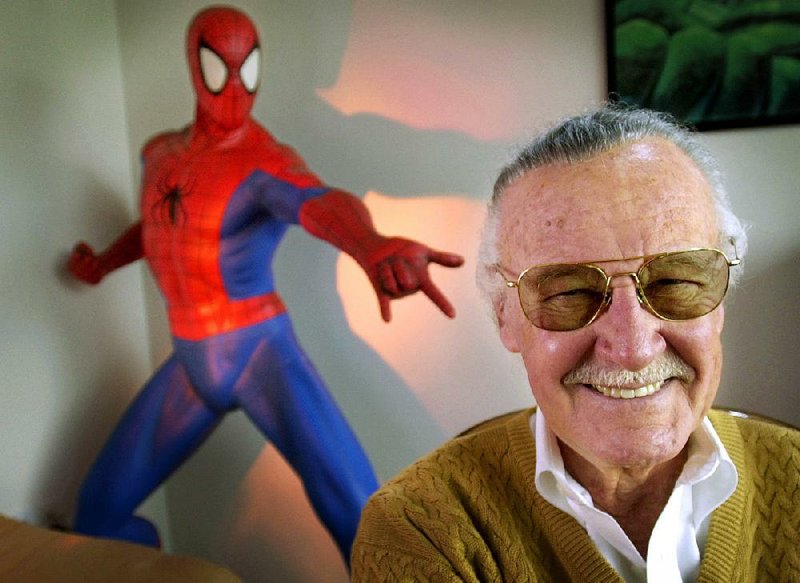LOS ANGELES -- Stan Lee, the creative dynamo who revolutionized the comic book and helped make billions for Hollywood by introducing human frailties in Marvel superheroes such as Spider-Man, the Fantastic Four and the Incredible Hulk, died Monday. He was 95.
As the top writer at Marvel Comics and later as its publisher, Lee was widely considered the architect of the contemporary comic book. He revived the industry in the 1960s by offering the costumes and action craved by younger readers while insisting on sophisticated plots, college-level dialogue, satire, science fiction, even philosophy.
He won the National Medal of Arts in 2008.
Recent projects Lee helped make possible range from the films Avengers: Infinity War, Black Panther and Guardians of the Galaxy to such TV series as Agents of S.H.I.E.L.D and Daredevil. Lee was recognizable to his fans, having had cameos in many Marvel films and TV projects.
Captain America actor Chris Evans mourned the loss on Twitter: "There will never be another Stan Lee. For decades he provided both young and old with adventure, escape, comfort, confidence, inspiration, strength, friendship and joy. He exuded love and kindness and will leave an indelible mark on so, so, so many lives. Excelsior!!"
Lee hit his stride in the 1960s when he brought the Fantastic Four, the Hulk, Spider-Man, Iron Man and numerous others to life. "It was like there was something in the air. I couldn't do anything wrong," he said.
His heroes, meanwhile, were a far cry from virtuous do-gooders such as rival DC Comics' Superman.
The Fantastic Four fought with each other. Spider-Man was goaded into superhero work by his alter ego, Peter Parker, who suffered from unrequited crushes, money problems and dandruff. The Hulk was marked by self-loathing. Daredevil was blind and Iron Man had a weak heart.
Some of Lee's creations became symbols of social change -- the inner turmoil of Spider-Man represented '60s America, for example, while The Black Panther and The Savage She-Hulk mirrored the travails of minorities and women.
"I think of them as fairy tales for grown-ups," he said in an interview. "We all grew up with giants and ogres and witches. Well, you get a little bit older and you're too old to read fairy tales. But I don't think you ever outgrow your love for those kind of things, things that are bigger than life and magical and very imaginative."
Lee scripted most of Marvel's superhero comics himself during the '60s, including ones about the Avengers and the X-Men. In 1972, he became Marvel's publisher and editorial director; four years later, 72 million copies of Spider-Man were sold.
The first big-budget movie based on Lee's characters, X-Men, was a smash in 2000, earning more than $130 million at North American theaters. Spider-Man did even better, taking in more than $400 million in 2002. A Marvel movie empire would emerge after that, one of the most lucrative mega-franchises in cinema history, with the recent Avengers: Infinity War grossing more than $2 billion worldwide.
Lee's direct influence faded in the 1970s as he gave up some of his editorial duties at Marvel. But with his trademark white mustache and tinted sunglasses, he was the industry's most recognizable figure.
Lee's wife and partner in nearly everything, Joan Lee, died in 2017, leaving a void that made her husband, by then in mental and physical decline, vulnerable to hangers-on who began to surround him. Lawsuits, court fights and an elder abuse investigation all emerged in the fight over who spoke for the elderly Lee.
Lee is survived by his daughter, Joanie, and a younger brother who also worked in comics, Larry Lieber.
Information for this story was contributed by John Rogers of The Associated Press.
A Section on 11/13/2018
